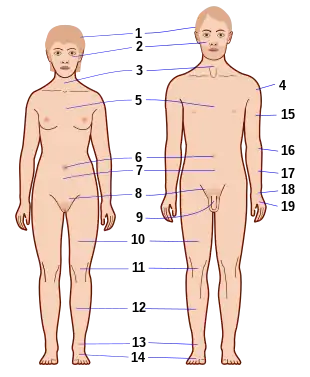pûm
Akkadian
| Picture dictionary | ||
|---|---|---|
| ||
|
Etymology
From Proto-Semitic *pay- (“mouth”). Cognate with Arabic فَم (fam) and Biblical Hebrew פֶּה (pɛ).
Pronunciation
- (Old Babylonian) IPA(key): /ˈpuːm/
Noun
pûm m (base pī or pā, construct state pī, pronominal state pī, plural pâtum f) (from Old Akkadian on)
Alternative forms
| Logograms | Phonetic |
|---|---|
|
Related terms
- ana pîm
- ana pī
- ina pîm
- piam epēšum
- piam šakānum
- ša pī
- ṣīt pîm
References
- “pû”, in The Assyrian Dictionary of the Oriental Institute of the University of Chicago (CAD), Chicago: University of Chicago Oriental Institute, 1956–2011
- Black, Jeremy; George, Andrew; Postgate, Nicholas (2000), “pû(m)”, in A Concise Dictionary of Akkadian, 2nd corrected edition, Wiesbaden: Otto Harrassowitz Verlag
This article is issued from Wiktionary. The text is licensed under Creative Commons - Attribution - Sharealike. Additional terms may apply for the media files.

